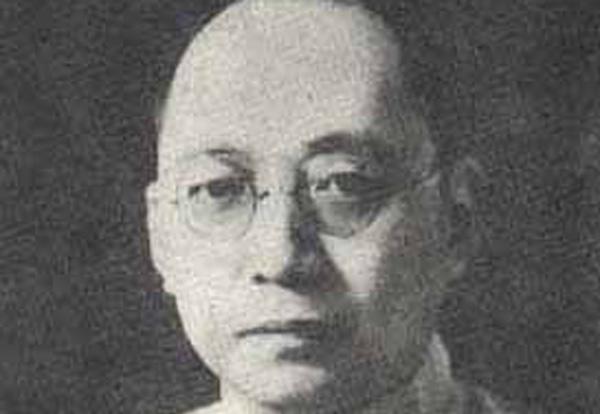Liu Yazi was the founder of Nanshe, the first revolutionary literary group in China's modern history, and was once called "the linfeng among people" by the great Mao Zedong of a generation. On October 7, 1945, Mao Zedong's "Qinyuan Spring. The lyrics of "Snow" were published under his singing and sensationalism in all walks of life in Chongqing.

Liu Yazi
However, few people know or notice that in the spring of 1929, Liu Yazi wrote a poem "Tribute to Mao Zedong": "The tomb of the head of the Divine Spirit Peak is Qing, and the Chizhi of Shonan is running across the country." The world's reputation was ruined by The original Hugh asked, and the two Lenins of the world were destroyed. ”
He also added a special note: "Two Lenins" refers to Dr. Sun Yat-sen and Comrade Mao Runzhi.
In the spring of 1929, Mao Zedong led the main force of the Red Fourth Army to oppose encirclement and suppression, and people lived well, but why did Liu Yazi write this poem "Mourning Mao Zedong"?
Obviously, there's a story here.
In early April 1929, the Former Committee of the Fourth Red Army received a "February Letter" from the Central Committee of the Communist Party of China in Ruijin ordering the dispersal of the Red Army. The letter was written on the instructions of Bukharin, secretary of the Comintern. Bukharin had only the experience of the October Revolution from the cities to the countryside, and had no idea at all that the Chinese Red Army was able to exist but develop in combination with the peasant movement and to carry out the "armed division of the workers and peasants." Under the circumstance that the main forces of the Red Fourth Army led by Zhu De and Mao Zedong withdrew from Jinggangshan in order to crush the "encirclement and suppression" of the Kuomintang troops in the two provinces of Xianggan and Gansu and were chased by a strong enemy, the CPC Central Committee believed that Bukharin's analysis of the Rural Soviet Movement in China was in line with China's situation, so in disregard of the suggestions made by the former committee of the Red Fourth Army to the Central Committee, it once again made instructions and arrangements for the dispersion of the Red Fourth Army: "The Central Committee, in accordance with the instructions of the Sixth Congress, I have long told you that you should systematically and systematically divide the armed forces of the Red Army into small units and scatter them into the villages on the border of Hunan and Gansu to carry out and penetrate deep into the agrarian revolution," that "the tactics you have acquired in this war are still the actions of the cliques," and that you must "resolutely carry out the plan of organized division"; and that "the Central Committee, on the basis of the present situation, decides that Comrades Zhu Mao and Mao have the need to leave the troops and come to the Central Committee." ”
In order to ensure the implementation of the central authorities' determination, on the one hand, Luo Shounan of the Central Military Department was sent to Gannan to find the Red Fourth Army with the specific plan of the division plan, so as to implement the central government's decision to disperse the Red Army and Zhu Mao to leave the troops.
On the other hand, in a letter to the Guangdong Provincial Party Committee, you sent competent men to find the Red Fourth Army, to implement the instructions of the Central Committee to disperse the Red Army and Zhu Mao to the Central Committee, and to ensure the safe passage through the Kuomintang area and divert the enemy's attention, "Now try to send a message to [the country] by a public news agency or newspaper that Zhu Mao has been killed, or that Zhu Mao has [gone abroad] in places such as Nanyang or Annan." ”
It was precisely on the basis of this arrangement of the central authorities that at this time, the Shanghai "Declaration" published the Nanchang newsletter: "According to the information of the Seventh Division Headquarters, in the Battle of Jitan, the bandits were shot and more than 500 people died, and Zhu Mao either died or fled, and is under investigation. ”
The famous poet Liu Yazi, who received the news from the newspaper that Mao Zedong was "dead" at that time, believed it to be true, was greatly shocked, and looked up to the sky to ask questions. Thus, there is the poem "Mourning Mao Zedong" mentioned at the beginning.
According to historical data: "Examination of Major Historical Facts of the Communist Party of China"